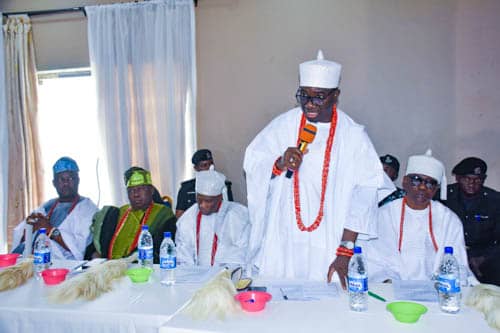By Kayode Olasehinde and Zarumi Mashood
Leaders and critical stakeholders in the Kwara South Senatorial District on Monday met to discuss and drive change on issues affecting the interest and general welfare of their communities.
Issues discussed at the meeting which was tagged “strategic stakeholders’ consultation”, bother on security, economic growth, and quality representations in governance.
Held in Ilorin the capital city, the programme was organized by the Kwara South Development Initiative (KSDI), under their leader, Dr Johnson Adewumi. It was themed: “Reawakening the Giants”.
Governor AbdulRahman AbdulRazaq was represented at the event by Deputy Chief of Staff, Princess Olubukola Babalola.
The forum brought together traditional rulers, political leaders, security experts, serving and former commissioners, lawmakers, legal luminaries, businessmen, youth and women groups, and members of the diaspora.
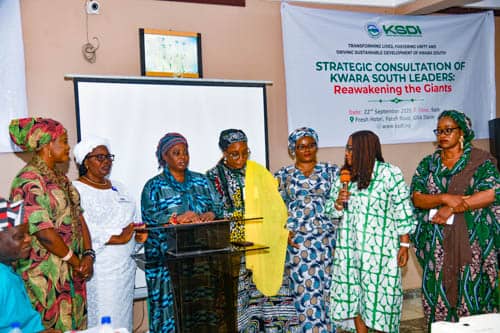
Attendees included the state chairman of the All Progressives Congress (APC) Prince Sunday Fagbemi, state legislators from Kwara South led by Deputy Speaker Kwara House of Assembly, Hon Ojo Olayiwola Oyebode; senior government officials; local council chairmen, traditional rulers led by the Olupo of Ajase-Ipo, Oba Ismail Yahaya Alebiosu and Oloriewe Raheem Adedoyin.
Also in attendance were the Chief Press Secretary to the Governor, Rafiu Ajakaye; General Manager of The Herald Newspapers, Yomi Adeboye; Engineer Nuruedeen Adeyemi; Professor Wale Suleiman; Hon Gbenga Makanjuola, among others.
Addressing the gathering, Governor AbdulRazaq said the entire part of the state is better served under his watch, highlighting the sectoral achievements of his administration to unlock economic potential and improve the quality of lives.
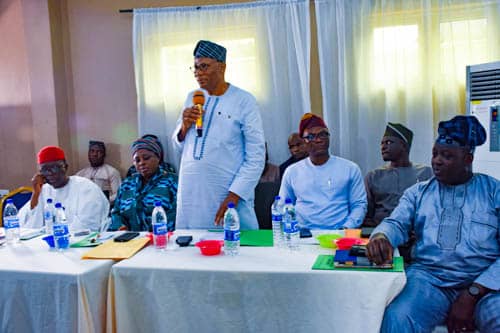
AbdulRazaq hailed the organizers for their leadership role in shaping a vibrant Kwara South, saying: “Your resilience and commitment have been the bedrock of our shared progress.
“We have prioritized infrastructure to unlock economic potential and improve lives. To date, we have completed at least 63 kilometers of roads in Kwara South alone, with an additional 109 kilometers either under construction or soon to be awarded.
“These include critical routes like Ajase-Ipo to Okeya Ipo; Owode Ofaro to Alabe; Omu Aran to Oko; Palace Road in Ijagbo; Arandun Township Roundabout, Esie-Oro Township Road; Ijara Isin Sabaja Owa Onire (en route Owu Water Fall); Ibrahim Taiwo Popo General Hospital in Offa; Oke Iyapo to Oba Yero Village along Oke Ode; Ilemona Ojoku Road (to be awarded); Agbamu Ila Orangun Road; Offa Ojoku Afon Eiyenkorin; Orisa Bridge; and Osi Obo Aiyegunle Road, among others. These projects reflect our commitment to connecting communities, improving lives, and fostering growth”.
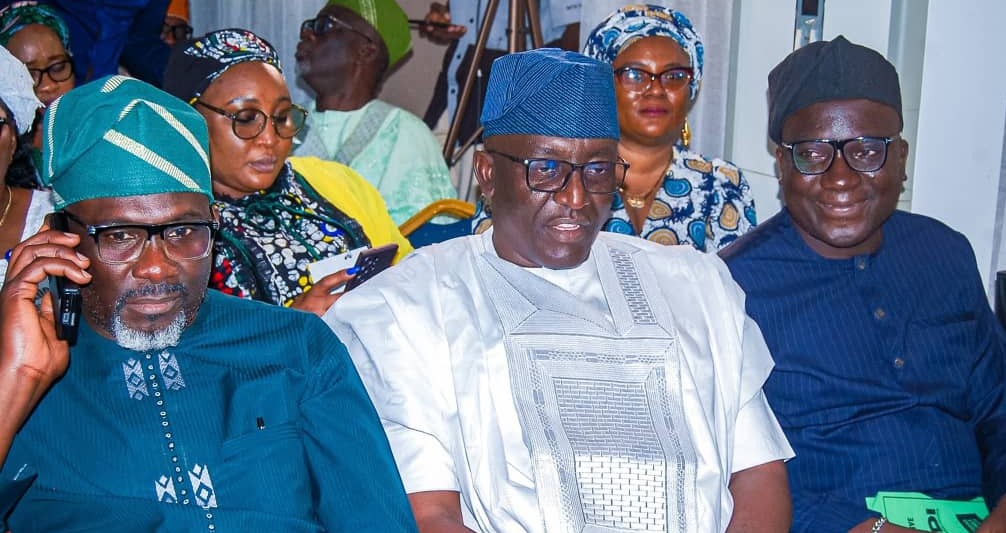
The Governor sought the continuous support of stakeholders to strengthen security in the region, saying it requires collective efforts to rout out criminal elements.
“Security is a collective responsibility, and your partnership and support for the security agencies is vital in this monumental task. I urge vigilance at all times as our enemies have informants and enablers within us. Let us work together to unmask them and keep our communities completely safe and conducive for growth.
“At this point, I wholeheartedly acknowledge the community-driven initiatives and the sacrifices of everyone in this regard, including the council chairmen, traditional rulers, thought leaders, and our brave vigilantes. Our words are with the families of our heroes who died protecting us.”
Olupo lauded President Bola Ahmed Tinubu and Governor AbdulRazaq for various political appointments for all sons and daughters of Kwara South.
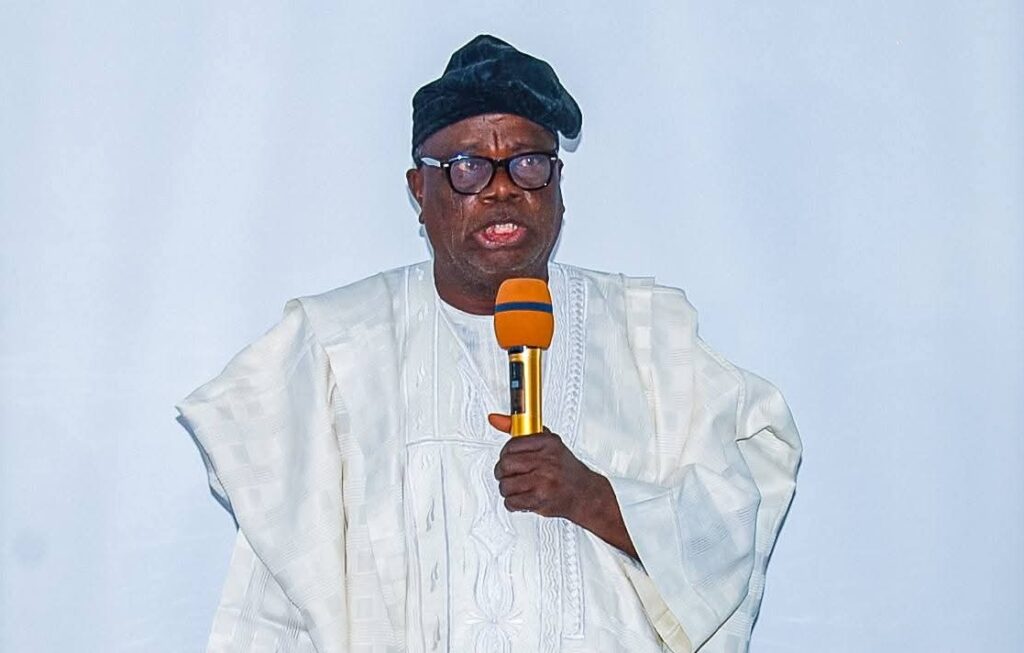
He charged people of the region to continue to live in peace and unity and give room for continuous growth and development of the district.
The Convener of the initiative, Engr. Dr. Johnson Bamidele Olorunsola Adewumi said KSDI assumes a mission to promote attitudinal change by the stakeholders.
He expressed deep concern over the rising wave of insecurity in the district, warning that rural communities have become soft targets for terrorists, kidnappers, and criminal gangs.
He described insecurity as the “cornerstone of developmental challenges” in Kwara South.
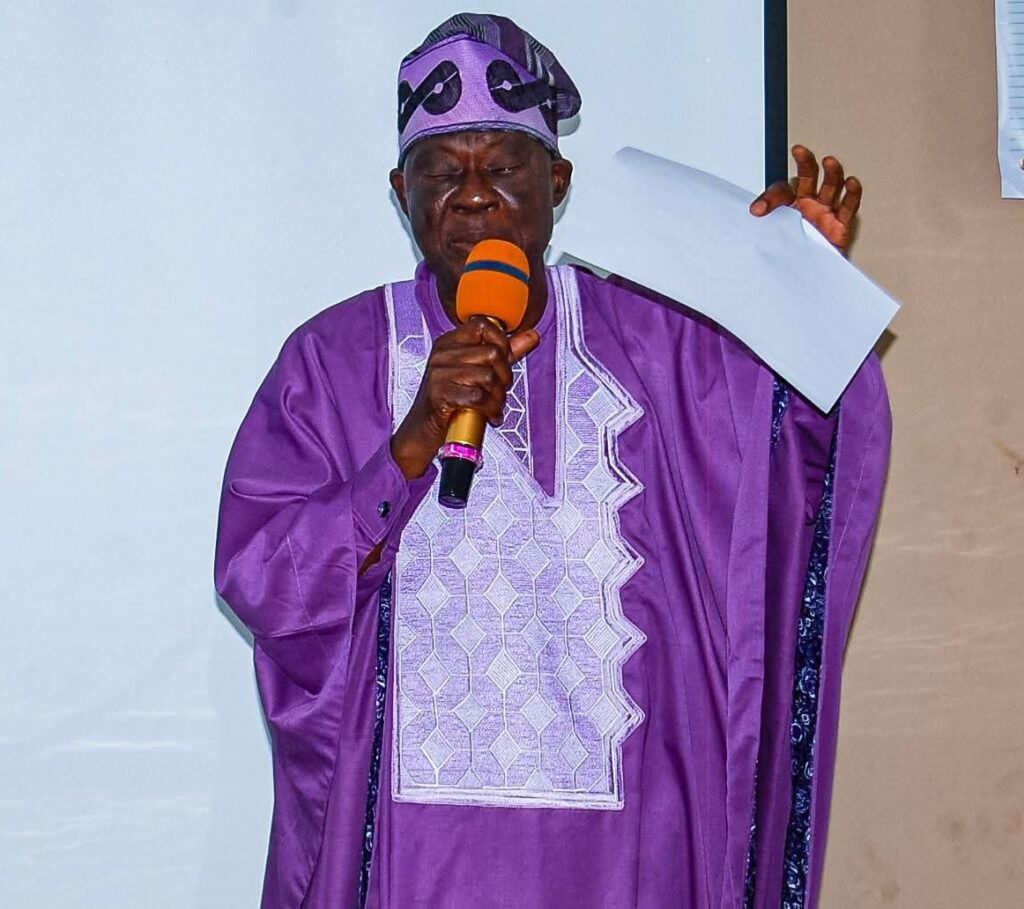
While commending Governor AbdulRahman AbdulRazaq for proactive measures—such as procurement of security equipment, training and deployment of forest guards, and his morale-boosting visit to Ifelodun, the epicenter of attacks—Adewumi stressed that government alone cannot win the battle.
He hailed local vigilantes as “patriotic heroes” who have paid the ultimate price defending villages like Isanlu-Isin and Omu-Aran in recent weeks, urging massive support for their operations.
According to him, the Traditional Council under the leadership of HRH Oba Olupo of Ajase-Ipo had prepared a ₦1.2 billion security fund estimate, which must be supported by community leaders and diaspora indigenes.
KSDI, however, accused federal lawmakers from the district of abandoning their constituencies despite rising allocations for constituency projects.
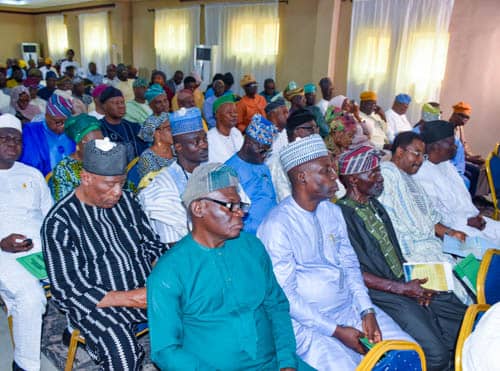
The group insisted that their failure to complement state and local efforts had left traditional rulers, vigilantes, and volunteers shouldering the burden of local defense.
“The village level is the first line of defense against terrorists attacking Nigeria today. We must not allow this line to fall,” Adewumi warned.
The convener cited the example of Azare in Bauchi State, where residents successfully organized to repel terrorist incursions, urging Kwara South to adopt a similar communal approach.
He lamented that abandonment of farmlands and rural migration were creating ungoverned spaces now dominated by criminal groups, noting that Fulani settlements had begun to outnumber Yoruba natives in parts of Ifelodun Local Government.
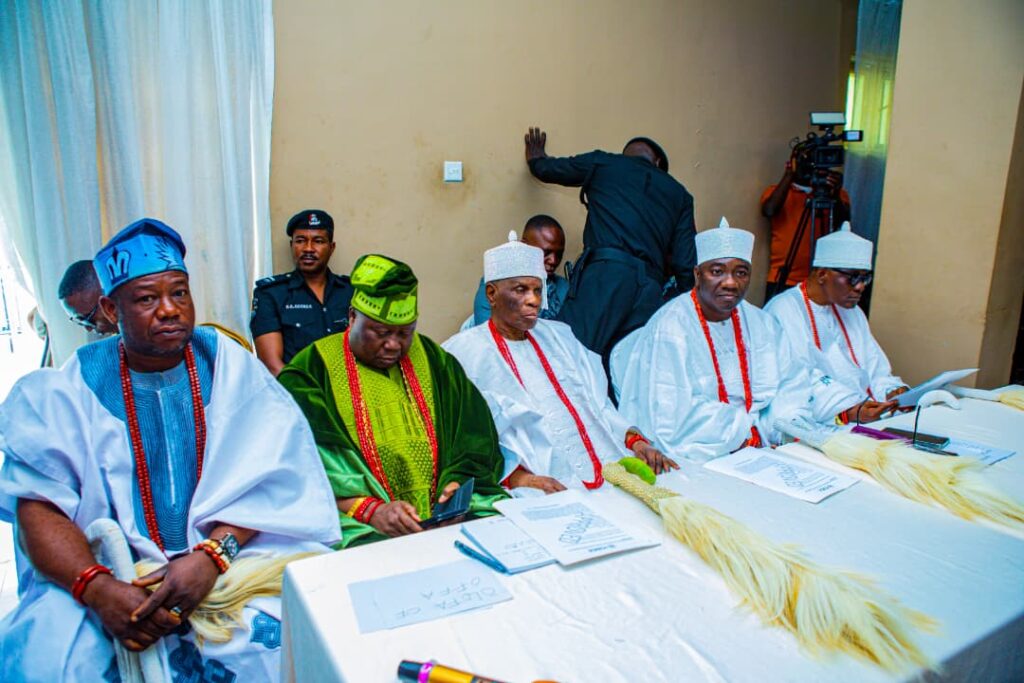
KSDI further urged wealthy indigenes, particularly in the diaspora, to contribute to security and community development.
Adewumi argued that the same patriotic spirit that drove community leaders in the 1960s and 70s to build schools, hospitals, and industries must now be rekindled to tackle insecurity and poverty.
The group also highlighted its community cooperative model, registered with the Kwara State Ministry of Trade, as a platform for empowering youths and women through agriculture and enterprise to curb rural unemployment and discourage crime.
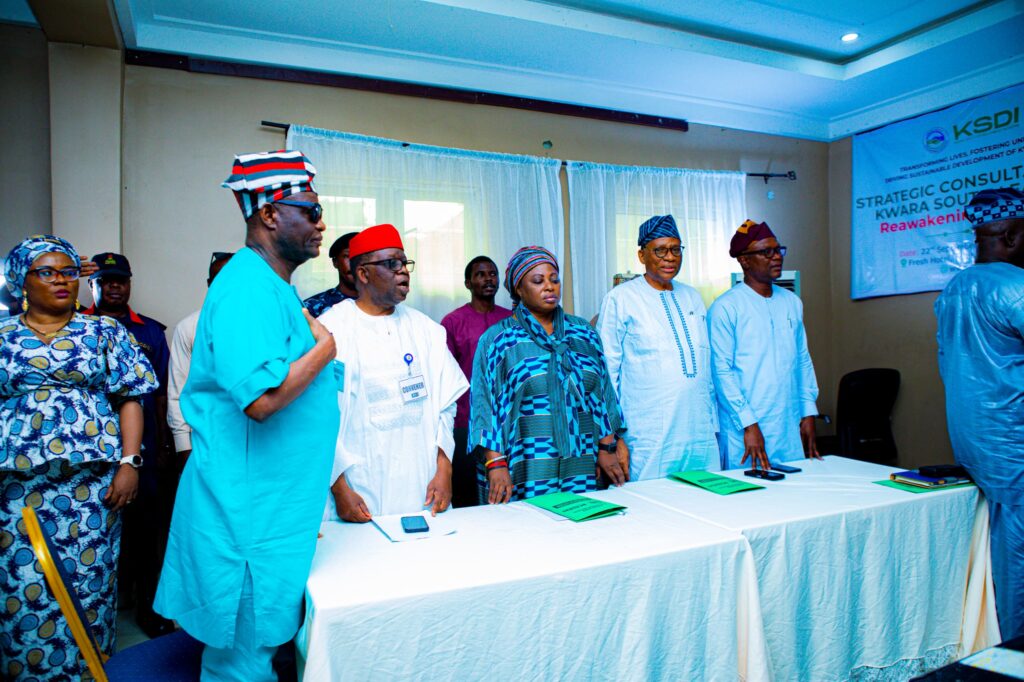
As the meeting closed, participants unanimously resolved that genuine change in Kwara South must be anchored on collective responsibility, communal vigilance, and transparent leadership.
KSDI also issued a stinging rebuke of the district’s political leadership since 1999, accusing them of weakness, waste, and disconnection from the grassroots.
With the 2027 elections approaching, the group warned against recycling moneybag politicians and called for credible candidates with verifiable records of service.
“Our youths are tired of empty promises. Even those abroad want to return home, but they hear depressing news from Kwara South. In 2027, we must raise the stakes,” Adewumi said.
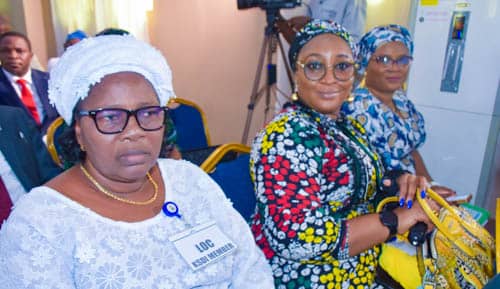
He further urged royal fathers to resist inducements from aspirants, stressing that such practices perpetuate poor representation.
Despite its criticism of federal lawmakers, KSDI pledged full support for Governor AbdulRazaq’s policies and programmes, particularly in education, rural roads, healthcare, and agriculture, which participants noted were directly linked to enhancing security.
“When government fixes roads, builds schools, and supports agriculture, it is not only developing the community but also shutting out criminals who thrive on neglect,” the forum resolved.
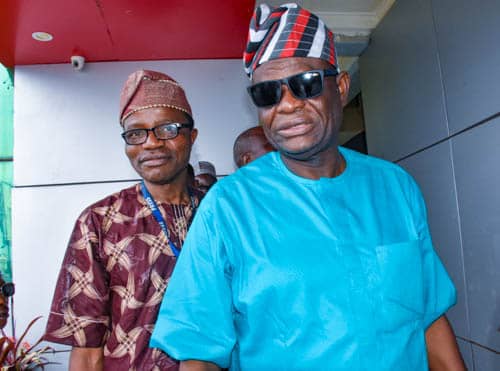
Adewumi clarified that the initiative is not a political platform and that he harbors no personal ambition, emphasizing that the movement is driven solely by patriotic zeal and concern for the welfare of Kwara South people.
Speakers at the forum unanimously commended Governor AbdulRahman AbdulRazaq for his administration’s focus on inclusive development across Kwara State. They particularly pointed to projects in education, rural roads, healthcare, and agricultural support as evidence of a government that listens to the people.
Participants noted that many communities in the Southern part of the state had benefited from rural road rehabilitation, school renovations, and healthcare upgrades. These interventions, they argued, were not just about infrastructure but also directly linked to the security of the people.
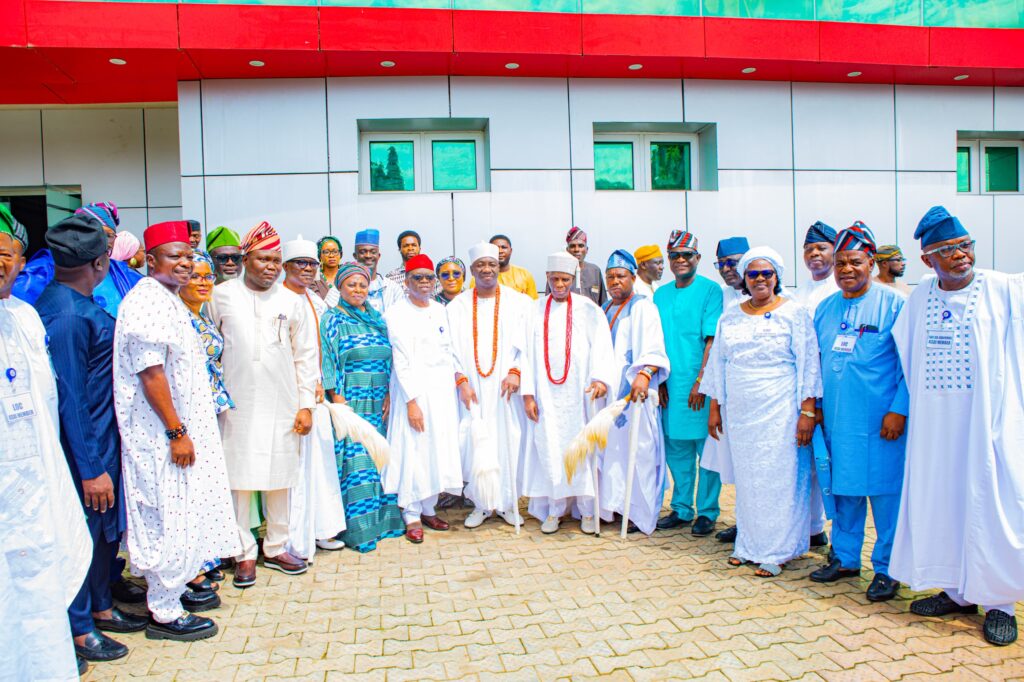
“When government fixes roads, builds schools, and supports agriculture, it is not only developing the community but also making it difficult for crime to thrive. Criminals exploit neglect, but development shuts them out.”
The forum resolved to continue supporting the state government by mobilising grassroots communities to key into its policies and by ensuring that government programmes are effectively monitored and sustained.

